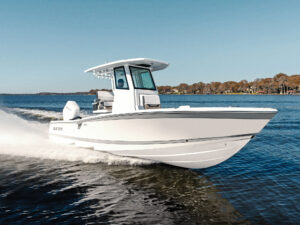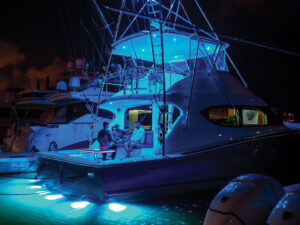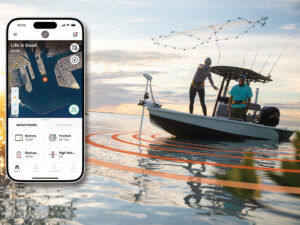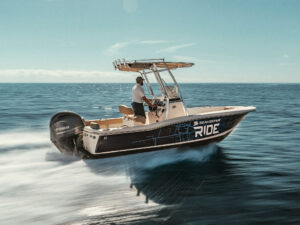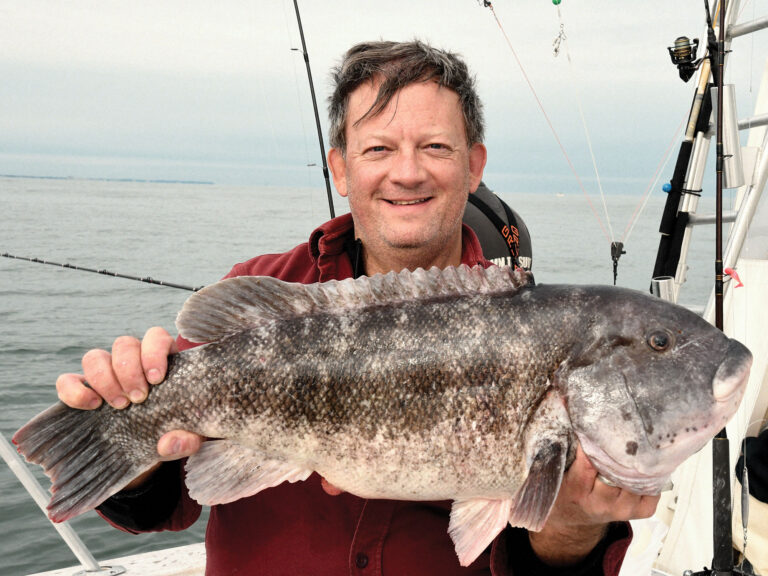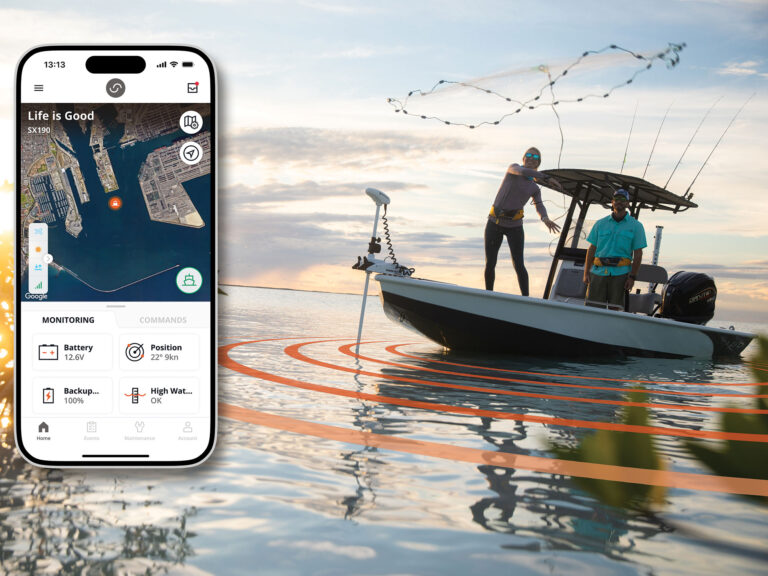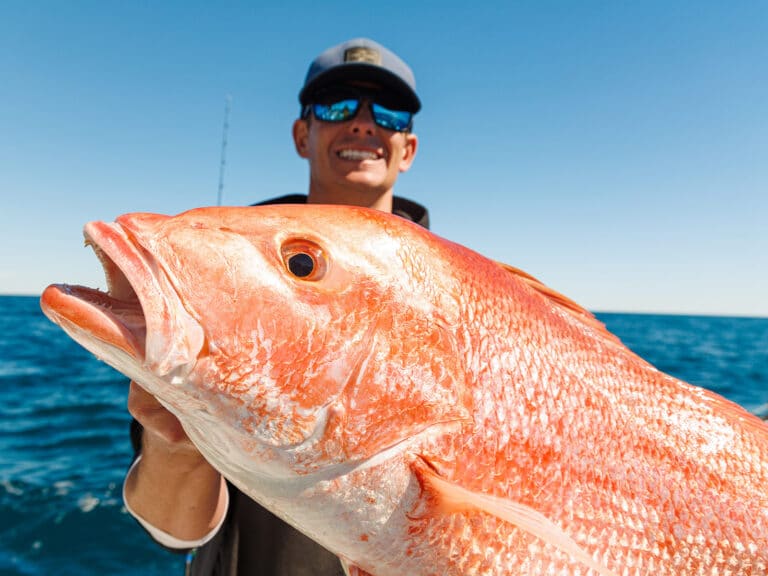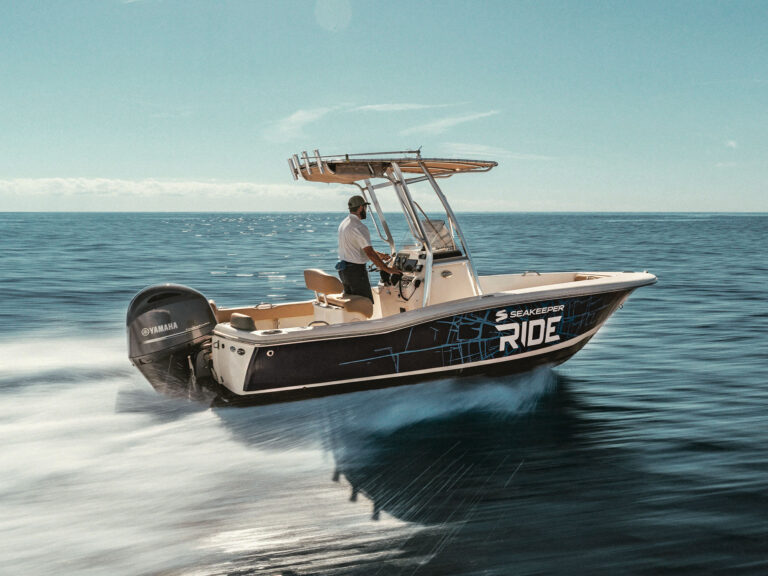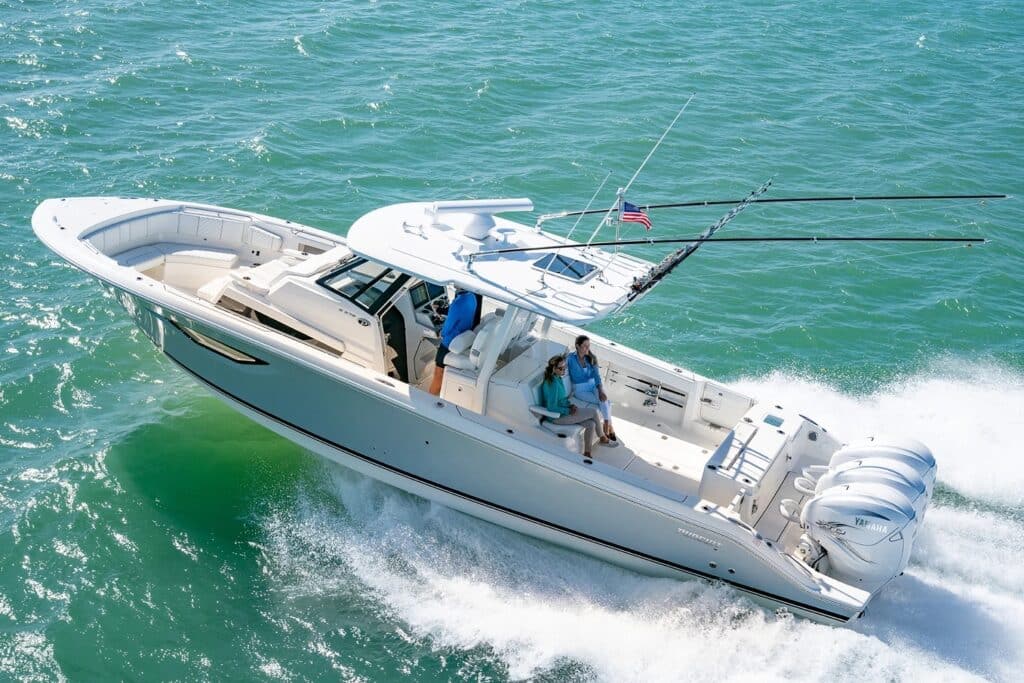
A price boat is defined as a model that lacks the refinement and extra features found on premium boats to, you guessed it, keep the price lower. Is that a bad thing? Not if it means being able to afford a bigger, more capable boat that stays within your budget. The problems begin when a boat doesn’t have features that are necessary for it to perform its job or has manufacturing shortcuts that are readily noticeable.
Power Shortage
Many times, when a company has a model with a nationally advertised price that’s really low, it’s because it’s packaged with an engine that’s produces too little horsepower. To me, this is the most unpardonable sin a manufacturer can make. Granted, some buyers aren’t in a hurry to get where they are going, but if a skipper has to ask people to move up front to get a boat on plane or can’t invite as many people as they would like, the power is inadequate. And unfortunately, the buyer has to pay for this deficiency twice: when they own the boat and when they try to sell it.
Have it Your Way
Premium boats reflect a spare-no-expense, sweat-the-details philosophy to make sure everything is flawless. This costs money that not everyone has. I’m OK with certain things that save money. While having the underside of a hard top finished to match the hull’s color is cool, is it worth an extra $1,000 or more? Not to me. Sometimes high-end boats have standard features that would normally be options on other boats, but if you are paying for something you don’t need or want, it’s wasted money. The opposite can also be true. I hate it when a builder has an artificially low base price that doesn’t include critical items. “Oh, you want a steering wheel with that?”
Good Help is Hard to Find
When I get on a boat, I look for certain things that tell me a lot about how a boat was built. I always look at the quality of welds on items like hard-top frames and hand rails. A good story that reflects this detail is about a welder who was applying for a job and asked how much it pays. The answer was: “It pays between $15 to $30 an hour. Let me see your work.” When the prospective employer looked at the sample welding at first it was flawless with evenly spaced and consistent welds. Then, it quickly deteriorated into uneven welds that sometimes had gaps. The employer said, “What the hell is this?” And the welder answered, “These are the $30/hour welds and those are the $15/hour welds.” The point is companies that cut corners by hiring underpaid, undertrained employees are not going to put out a good product. If you are considering buying a boat and the factory is close enough, take a tour. If it’s excessively dirty and the employees look sullen or stressed, keep looking. Another red flag is if companies don’t allow prospective buyers to visit the factory.
Details that indicate a manufacturer has quality control issues:
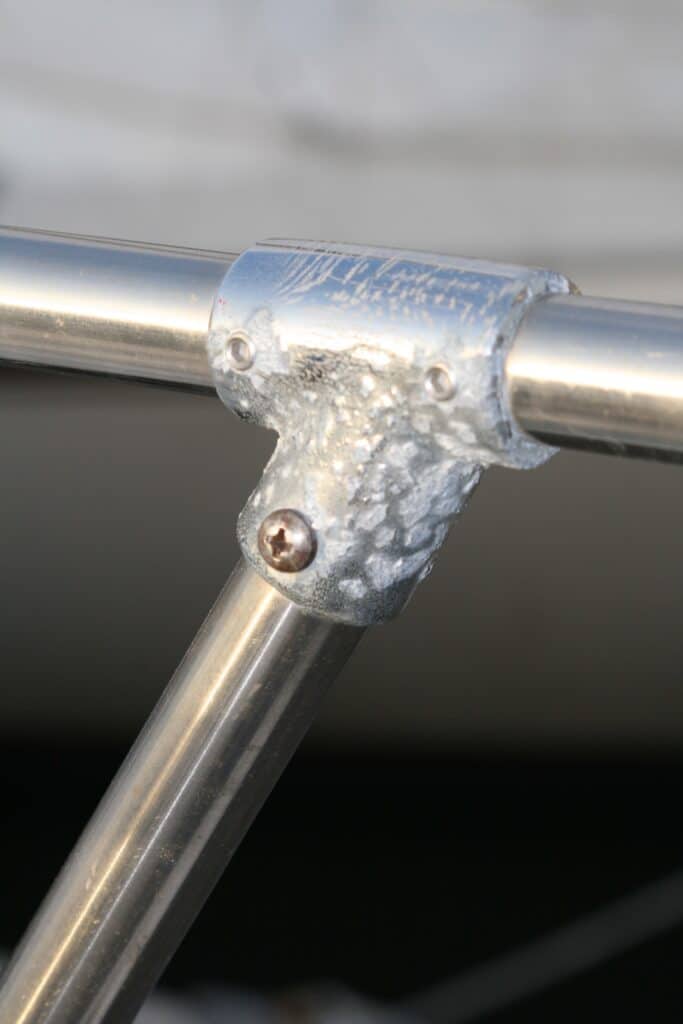
- Hatches that don’t fit correctly or bang when dropped.
- Using an inferior grade stainless steel for hardware that can corrode instead of using 316, which has molybdenum added to prevent it.
- When looking at the hull from the side, it looks wavy.
- Upholstery that has thin padding and is poorly stitched.
- Handling issues during a sea trial, like a boat that has excessive bowrise when planing or instability at high speeds.
- The inside of compartments have sharp edges or exposed screw points.
- Cleats that are too small or are made of plastic.
Acceptable money-saving features:
- A leaning post rather than deluxe helm seats with electronic adjustments.
- A regular stainless steel wheel instead of a high-end designer model.
- Unfinished compartments like the anchor locker or inside of an electronics box.
- A canvas T-top instead of a hard top.
- Regular binnacle controls instead of a joystick on boats less than 30 feet long.
- A 12-inch multifunction display instead of a 20-inch one.
- A white hull instead of a colored one or one that has fancy graphics.

